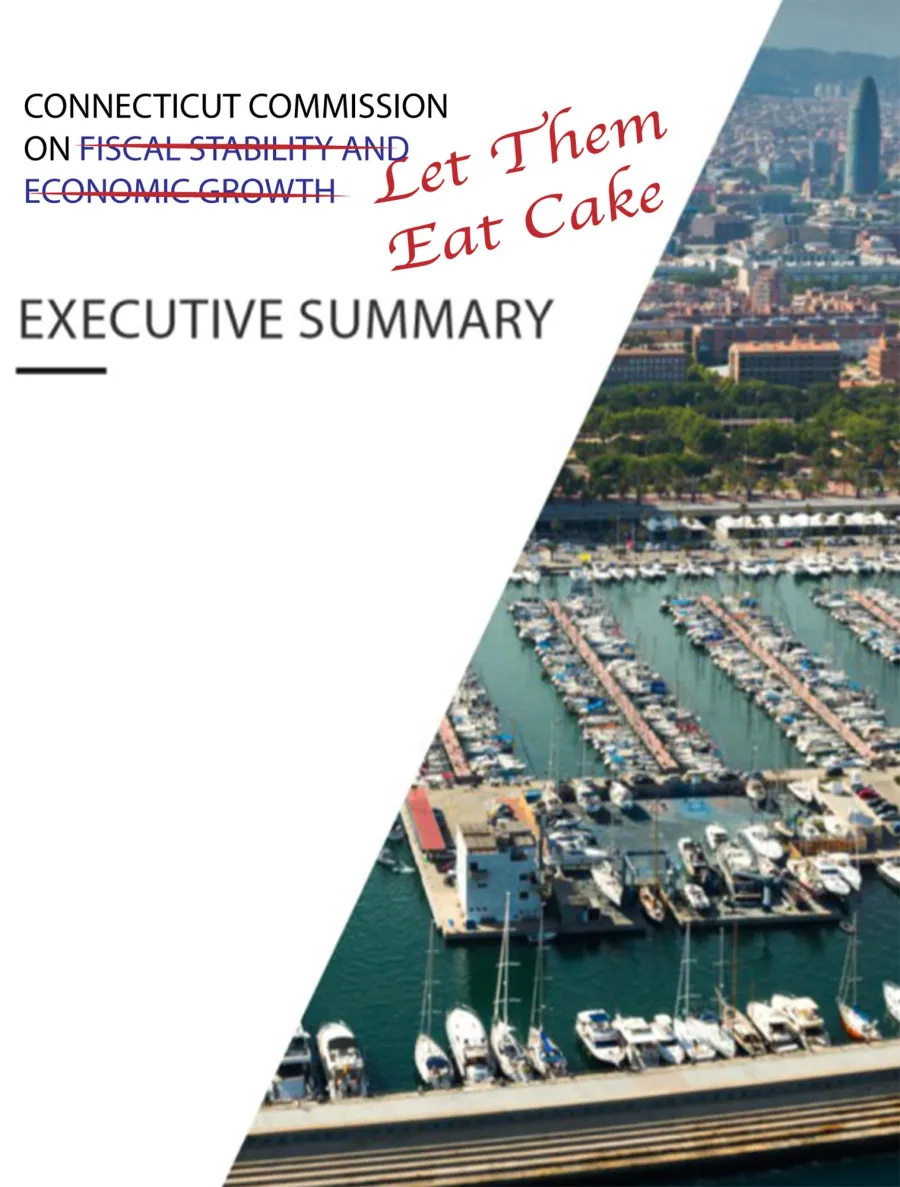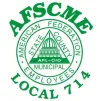Gearing Up to Defeat the 'Let Them Eat Cake' Commission

Less than three months after its inaugural meeting, the legislative Commission on Fiscal Stability and Economic Growth last Friday released its recommendations to the General Assembly. Considering the panel's domination by corporate executives, their proposals are unsurprisingly heavily tilted in favor of the ultra-rich. Still, their plan to silence the voices of Connecticut's working men and women are cause for genuine concern — and a call to action.
Labor leaders in early February appeared before the commission at its final public meeting to make the case for tax fairness and pro-working family policies to boost the economy. Together, they refuted persistent myths perpetuated by anti-union special interests and put forward common sense proposals for combatting income inequality that appear to have fallen on deaf ears.
Click here for our previous report-back following last month's presentation to the commission.
Instead, the commission prescribed the "low road" approach pushed by the state’s powerful corporate and municipal lobbies. The most egregious proposal would strip state employees' of their rights to negotiate retirement security and medical coverage after our current master contract covering pension and healthcare benefits expires June 30, 2027.
Labor leaders who, just three weeks earlier made a convincing case for the commission to respect working people, responded sharply to the report’s failings.
Council 4 Executive Director Sal Luciano said:
“Our union represents thousands of public service workers – from correctional officers, school paraprofessionals and wage and hour enforcement agents to plow drivers, child abuse investigators and police officers – that are central to Connecticut’s economic and social well-being. Stripping these employees of their rights and their freedom to negotiate a decent standard of living will not stabilize the state economy but will instead introduce chaos and hardship.
“Let’s learn from Wisconsin, where the Republican and Koch Brother war on unionized workers have contributed to stagnant wages and job growth, a shrinking middle class and even more limited economic opportunities for workers of color. Collective bargaining has worked for Connecticut and brought stability to what’s left of our middle class. We urge Gov. Malloy and the legislature to take notice, and resist the urge to customize a ‘Wisconsin moment’ for Connecticut.”
Additional recommendations that fall short on addressing Connecticut’s widest-in-the-nation inequality gap and would further erode middle and working class families' economic security include:
- Weakening binding arbitration laws to further advantage municipal and school board employers;
- Implementing unspecified "benefit reforms" and additional contribution rate changes to the Teachers' Retirement System (TRS);
- Slashing $1 billion in funding for vital public services delivered by state employees;
- Hiking prevailing wage thresholds on public construction and renovation projects to suppress earnings for workers in the building trades;
- Raising the sales tax from 6.35% to 7.25% to shift a greater share of the state budget’s revenue burden on working families;
- Repealing the estate and gift taxes to benefit the state's richest individuals.
Click here for press reporting on the release of the report.
While the commission’s recommendation to enact deep public service resource cuts lacked much specificity, the report does call for "a policy favoring privatization or outsourcing of state functions." The proposal stands in stark contrast to the record of costly contracting-out that over the past several decades has wasted billions in taxpayer dollars.
Click here for reporting on the SCSB's study on savings achieved through competitive bidding.
After the commission unanimously approved the report, the co-chairs urged the General Assembly take up the complete package and cautioned against breaking it up into separate policies. Describing it as a "grand bargain" that would only work if enacted in totality, they presented the report as an all-or-nothing proposal.
Four committees have already raised bills to serve as legislative vehicles for the commission's recommendations, raising the stakes for some, if not all, eventually becoming law. At the same time, multiple public hearings will provide the opportunity for union members, good government advocates and social justice activists to urge better choices.
Click here to urge your State Representative and State Senator to oppose the anti-worker recommendations of the commission.
Click here to sign-up to be part of efforts to defeat the commission's attacks on our freedoms.
